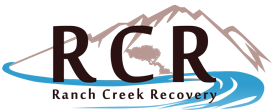Finding your way through a substance addiction can feel like being lost in a maze. Every time you think you are beginning to make progress, you find yourself frustrated and overwhelmed, wandering through life until you hit another dead end.
Add to that frustration the weight of managing a dual diagnosis, or a co-occurring substance use and mental health disorder, and the pressure of it all can sometimes seem more than you can bear.
So, where do you turn when life and all of its stressors overtake your being? Do you self-medicate with alcohol or drugs to drown out your tension and emotions?
If so, a treatment program tailored to your specific situation may be exactly what you need to finally rise above the confusion and set yourself firmly along the path to recovery.
While a traditional 12-step treatment program may not appeal to you, an alternative (holistic) non-12 step program may be the perfect remedy to address your dual diagnosis disorder.
What is Non-12 Step Addiction Treatment?
Understanding how a non-12step treatment program is unique and how it can benefit you along your recovery journey is essential to choosing the right treatment facility before beginning your path back to sobriety.
Where a traditional 12-step program focuses on the religious aspect of recovery, identifying the existence of a higher power and how that presence impacts addiction, a non-12 step program takes a more psychological and scientific approach.
Non-12 step treatment individualizes the therapeutic experience by emphasizing the importance of evidence-based addiction therapy that is tailored to each participant.
As opposed to a one-size-fits-all approach with 12-step programs, non-12 step programs incorporate your personal life experiences and feedback to create an individualized treatment plan to address your specific areas of need.
What are the Benefits of Non-12 Step Dual Diagnosis Treatment?
Being able to address your addiction from a personal perspective can be key to long-term sobriety and success.
Like most diseases, the symptoms associated with the illness can vary, as well as, the precipitating factors and familial influences. Being able to individualize the therapeutic approach and treatment sessions can prove instrumental in achieving sustained symptom relief.
Some of the primary benefits of non-12 step dual diagnosis treatment include:
- Enhanced focus on psychological addiction compulsions
- Less focus on spiritual factors and more on personal responsibility
- Getting to the root of the disease instead of simply treating the symptoms
- Better understanding of the way mental health issues interact with substance addiction
Integrating a proven mental health treatment approach into your recovery program enhances the potential for personal success.
This is not to minimize the importance of traditional 12-step programs. It simply highlights the necessity to offer alternative options to those looking for a deeper, personal connection throughout their recovery journey.
What to Expect from Non-12 Step Programs for Addiction and Mental Health
Non-12 step programs use an evidence-based approach throughout treatment, enabling you to experience therapy with a clinical professional who is licensed to properly treat both your mental health issues and co-existing substance addiction.
By focusing on increased self-empowerment and self-reliance, you can grow as an individual, addressing your negative behavioral patterns and addictive impulses with the help and guidance of a trained professional.
They can help you heal from the inside out with a proven therapeutic approach and holistic treatment interventions. These can include:
- Cognitive Behavioral Therapy – A form of psychological treatment that has been demonstrated to be effective for a range of problems – including depression, anxiety disorders, alcohol and drug use problems, marital problems, eating disorders and severe mental illness.
- Mindfulness Training – Some experts believe that mindfulness works by helping people to accept their experiences – including painful emotions – rather than react to them with aversion and avoidance. Mindfulness training helps you achieve a state of focused relaxation by paying attention to thoughts and sensations without judging yourself.
- Amino Acid Therapy – Amino acid therapy can be used to treat a variety of conditions, including anxiety, depression, substance addiction and more. Amino acids are basic building blocks used in the body to build proteins, such as muscle and other tissue, and they also serve as precursors to neurotransmitters. Humans utilize 20 amino acids, with 9 of those labeled as “essential” because we can’t synthesize them, and they must be obtained from our diet.
The key to non-12 step treatment is the way in which it is tailored to fit your individual needs. By focusing on your distinct experiences and symptoms, this treatment approach empowers you to not only confront the underlying issues impacting your dual diagnosis, but it also enables you to achieve sustained sobriety and personal happiness.
Life-Changing Alternative to 12-Step Recovery: Holistic, Non-12 Step Addiction Treatment at Ranch Creek Recovery
Offering an alternative to the traditional 12-step program, Ranch Creek Recovery offers a variety of all-encompassing, holistic in-patient treatment services. Your situation is unique, so your treatment should be customized to fit your individual recovery needs. Learn more about Ranch Creek Recovery and our holistic and experiential non-12 step rehab approach.
Have questions? We’re here to help in any way we can. Contact us today.
CALL NOW: (877) 293-8607












